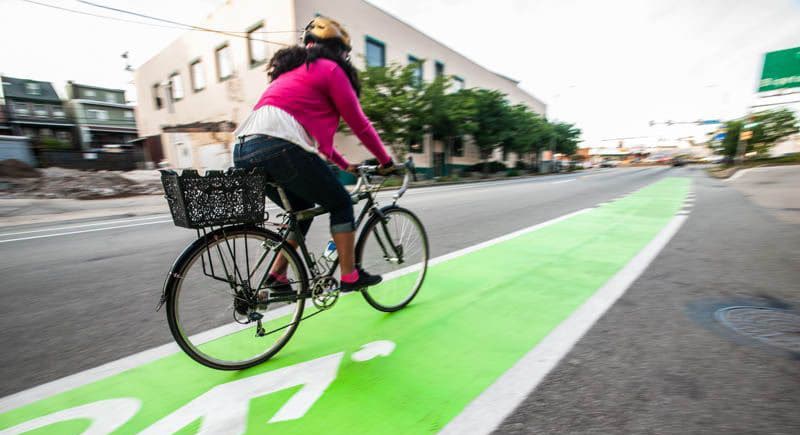
Mayor Expresses Sympathy and Describes Current and Future Projects
Today Mayor Peduto issued a statement expressing his sympathy and describing out the many initiatives, projects, and plans his administration has embarked on in the interest of making our streets safer. Not even two full years into his term, Mayor Bill Peduto has been a amazing champion for safer streets.
We were heartened by the Mayor’s willingness to move the Fifth/Forbes bike infrastructure project up to potentially be a 2016 project. It’s excellent to see that the mayor prioritizes road safety.
Read on for the full press release from the Office of the Mayor.
Making our streets safer is a critical priority. We are addressing this head on through new and renewed street infrastructure, the ongoing analysis necessary to make the right choices, and the education and enforcement initiatives to make it work.
Since January 2014, we have replaced aged, outmoded traffic signals and crosswalks with upgrades for vehicles and pedestrians, including audible signals that greatly improve safety at 70 intersections. These not only improve the safety and accessibility for our disabled community, they improve the safety for all Pittsburghers who use our streets.
Since September 2014, we have installed 2.62 miles of protected bike lanes and 4.25 miles of additional bike infrastructure, and plan for significant additions to this emerging network. Counters showed more than 30,000 bike trips monthly on the Penn Avenue bike lane downtown this summer.
We led fights in Harrisburg to allow for ride-sharing, joined battles to secure state funding for public transit, and started the process to adopt bus rapid transit. We finally implemented bike share — with more more than 12,000 riders using the new Healthy Ride Pittsburgh system every month — and increased car sharing options in conjunction with Healthy Ride to provide new multimodal opportunties for residents and visitors to the city.
These improvements not only improve safety for bikers, they improve it for everyone. To make the right decisions on where and how to do this best, we are working with communities, stakeholders, bicyclists and pedestrians to build a model biking network over the next eight years, where other cities have adopted models stretching over two decades.
Working towards greater safety on our streets, we are looking at the whole city. Pittsburgh has an aging infrastructure, steep hills, and narrow streets, so in April of this year I signed an executive order adopting Complete Streets planning and design for streets, sidewalks and other rights-of-way. Areas we are focusing on to start include our busiest, most challenging streets. In the Envision Downtown initiative, we are working to make downtown work better, and work safer, for the people who walk, bike, use transit, and drive there, and have hired Gehl Architects – the world’s leading people-centered urban design firm – to help us study mobility and livability there. Complete Streets planning is underway for new and existing street grids in Hazelwood as well.
In Oakland, we installed a quarter mile of a protected cycletrack last year on Schenley Drive from the University of Pittsburgh campus through Schenley Park, using support from the national Green Lane Project. This fall we worked with Oakland partners to add bike infrastructure along Bigelow, Bayard Street, and O’Hara Street, and we will soon complete a connection to Schenley Drive. This September, we applied for federal funding through the CMAQ (Congestion Mitigation and Air Quality) program to improve bike safety in the Fifth and Forbes corridor, in coordination with planning for transit and pedestrian improvements. We are looking at the corridor comprehensively because it is both a dynamic neighborhood and the crucial connection between our two largest employment centers, Oakland and Downtown.
In another busy district in East Liberty, the City partnered with Carnegie Mellon University’s Traffic21 research initiative to install adaptive signal controls at intersections that react in real time to changing vehicular, pedestrian and biking conditions. This technology – now being studied for the North Side as well – makes streets safer and has proven to cut vehicle emissions by nearly 25%.
We need to plan for change. In a few weeks, the National Complete Streets Coalition will be holding a workshop to roll up their sleeves and work with Pittsburghers on the future of the city’s streets. We will work with departments including Public Works, Planning, Police, and our county partners to hold a frank, robust discussion of what we need to do next: from street engineering, to safety education, to enforcement. We can become, even more than we are today, a city of neighborhoods where there are safe, good mobility choices for all.
Today, we have concrete improvements underway and in the pipeline — including intersections with the technology and engineering for greater safety, and better sidewalks, and safer intersections. We are planning for much more, and will be able to do it with the support of all the users of Pittsburgh’s streets.”
###
Sign up for Bike Pittsburgh’s newsletter, The Messenger, to get the latest news on events, bike and pedestrian infrastructure, and fun, delivered straight to your inbox. Twice monthly emails, no spam.
2 Comments
[…] Paul Ryan won’t raise the gas tax, he’s burdening drivers with higher repair bills. And Bike PGH carries Mayor Bill Peduto’s response to three recent traffic […]
[…] neighborhood have local street safety advocates demanding reforms and the mayor promising swift […]